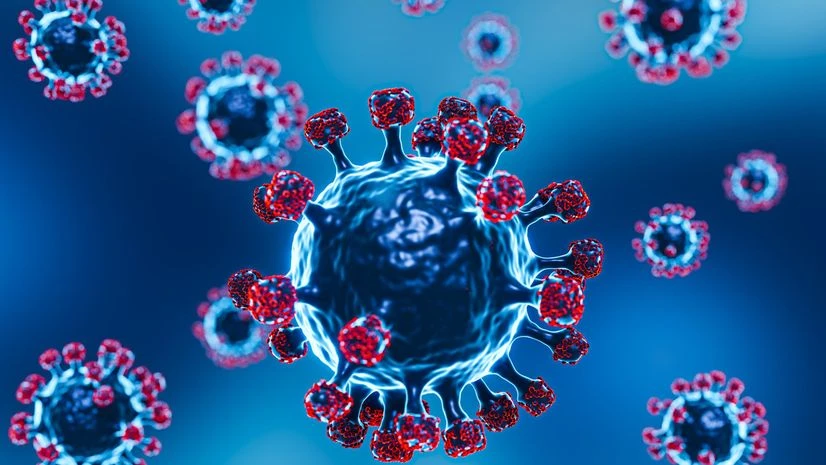)
The abnormalities appeared several weeks after hospital admission and in brain regions responsible for breathing. Photo: Freepik
Symptoms of long Covid, including fatigue and brain fog, have been linked to damage to the brainstem or the brain region, which acts as a “critical junction” between consciousness and all that is physically happening in the body, according to a study.
The brainstem connects the spinal cord to two main parts of the brain — cerebrum and cerebellum. Often dubbed as the ‘control centre’ of involuntary functions, the brainstem regulates basic life-sustaining activities such as breathing, heart rate and sleep, and located at the base of the brain.
Click here to connect with us on WhatsApp
Symptoms of long Covid have been studied to persist in some patients for up to two years following initial infection. The previous studies have found prolonged inflammation to be one of the main drivers of long Covid.
In this study, the researchers from the Universities of Cambridge and Oxford, UK, looked at high resolution MRI brain scans of 30 patients, who had severe Covid-19 early in the pandemic, and found that the infection caused inflammation in the brainstem region known to play a role in causing breathlessness, fatigue and anxiety.
The brainstem cannot be viewed directly unless the cerebrum — making up almost 80 per cent of the organ — is cut away, as described by scientists in previous studies.
The brainstem had been impossible to scan in living people owing to its “difficult” location and “tiny size”, said Catarina Rua from the University of Cambridge and first author of the study published in the journal Brain.
“Usually, scientists only get a good look at the brainstem during post-mortem examinations,” Rua said.
“The brainstem is the critical junction box between our conscious selves and what is happening in our bodies. The ability to see and understand how the brainstem changes in response to Covid-19 will help explain and treat the long term effects more effectively,” said lead author James Rowe, University of Cambridge.
Post-mortem studies of the patients, who had died due to severe Covid-19 early in the pandemic before vaccines were available, showed changes to brainstems, including inflammation, the researchers said.
Thus, they proposed that many of the troubling long Covid symptoms reported by hospitalised patients such as fatigue, breathlessness and chest pain, could be partly due to brainstem damage, known to persist long after infection has passed.
From the MRI scans, the researchers found abnormalities in the brainstem, especially in the regions of medulla oblongata, pons and midbrain, which they said were in line with an inflammation produced in response to the viral infection.
The abnormalities appeared several weeks after hospital admission and in brain regions responsible for breathing, they said.
Further, the damage to brainstem was also linked to the psychiatric effects of Covid-19, as the brain region strongly connects physical and mental health.
“Changes in the brainstem caused by Covid-19 infection could also lead to poor mental health outcomes, because of the tight connection between physical and mental health,” Rowe said.
(Only the headline and picture of this report may have been reworked by the Business Standard staff; the rest of the content is auto-generated from a syndicated feed.)
First Published: Oct 08 2024 | 2:25 PM IST


































